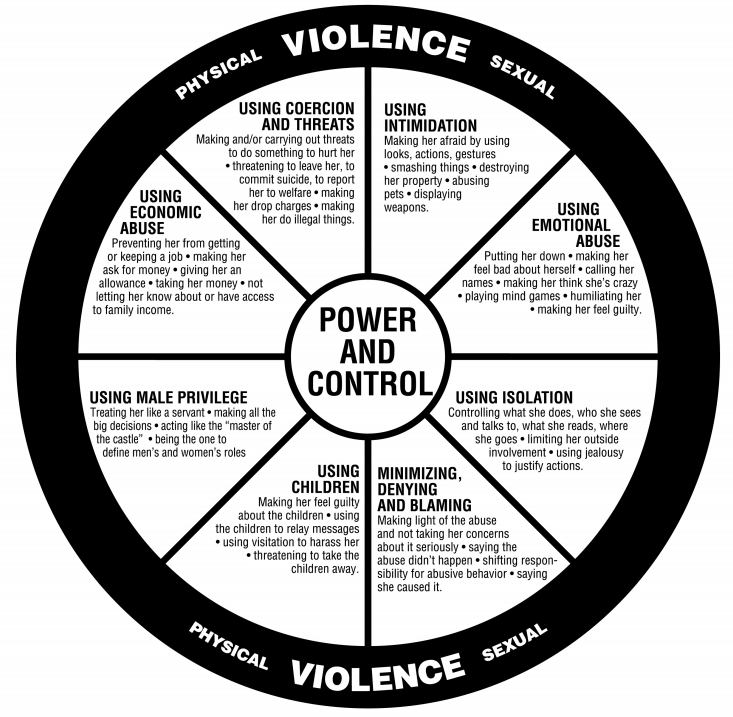Domestic Violence and Abuse Terminology
There is a great amount of jargon and terminology being used within the domestic violence and abuse sector. Furthermore, as awareness of the sector is growing, it is becoming increasingly important that the language used to talk about DVA issues is understood. The terminology here is not only for DVA but for connected issues.
What is the A to Z of Domestic violence and abuse terminology?
We have included below common acronyms, abbreviations, definitions of the terms, and examples of the language being used in context. As a result, the terminology can hopefully be better understood. Choose a term from the list below to learn more about it.
| Term | Acronym (If applicable) |
|---|---|
| Advocate | |
| Coercive and controlling behaviour (The invisible noose) | CCB |
| Domestic Abuse, Stalking, Harassment and Honour Based Violence | DASH |
| Domestic Violence and abuse | DVA |
| DVA Cars | |
| Honour Based Violence | HBV |
| Identification and Referral to Improve Safety | IRIS |
| Individual Safety Plan | ISP/ISSP |
| International Women’s Day | IWD |
| Sexual Violence | SV |
| Stalking Protection Orders | SPO |

What is an Advocate?
An advocate is a person whose main purpose is to provide victims and survivors with not only emotional but also practical support. This support is usually given to those who have already reported to the police or are considering it, but is of course available to anyone who needs it.
It is often used as part of acronyms such as ‘ISVA’ – Independent Sexual Violence Advocate. Some organisations use the term ‘adviser’ instead of or in addition to ‘advocate’ to describe a similar position.
What is Coercive and controlling behaviour (CCB)?
Coercive and controlling behaviour refers to a pattern of behaviour carried out by perpetrators in an attempt to exhibit control over their victim. Coercive and controlling behaviour may also be referred to as ‘the invisible noose’ due to the concealed nature of this crime. Women are far more likely to be victims, men are more likely to be perpetrators [1].
Common examples of coercive control
Perpetrators can use a variety of different tactics to control their victim. Typical examples may include:
- Threats
- Assault
- Humiliation
- Intimidation
- Financial control
- Attempts to limit access to support services
Coercive control is illegal in the UK, see the law here.
Do you want to know more about Coercive Control?
‘The power and control wheel’ identifies key behaviours seen in coercive control.
Below you can see the wheel ⬇️

If you think you may be experiencing coercive control, please get in touch with the Aurora team.
What is Domestic Abuse, Stalking, Harassment and Honour Based Violence (DASH)?
DASH refers to a Risk Identification and Assessment Model which is used by professionals working within the public protection sphere. The purpose of DASH is to recognise and assess so that Domestic Abuse, Stalking, Harassment and Honour Based Violence can be identified, prevented, and interventions staged.
Ultimately, DASH ensures thorough investigation, the sharing of information between departments, and the shared use of language to streamline communication within the sector.
You can download a copy of DASH here.
There is also a version of DASH which is a checklist for victims called V-DASH.
Where can I be DASH trained?
Aurora has a team of highly qualified and experienced UK-based trainers who, in addition to other DVA related trainings, run both online and offline DASH training. To find out how you or your team can be DASH trained, click here.
What is Domestic Violence and Abuse (DVA)?
Domestic Violence and Abuse is a term used to define abuse in the forms of physical, emotional, psychological, and/or sexual abuse typically occurring in relationships or between family members or personally connected. Although DVA can be perpetrated by anyone against anyone, it is much more commonly perpetrated by men against women [2]
It is illegal in the UK, see the law here. Domestic violence is not limited to, but may include: If you think you may be experiencing domestic violence or abuse, please get in touch with the Aurora team. DVA cars refers to a service provided by Aurora. DVA car advocates are members of the Aurora team who, alongside the police, can attend emergency calls involving domestic abuse. The purpose of the DVA car advocate is to provide emotional support and offer practical, informed, experienced advise to victims of DVA and DVA related incidents. You can find out more about DVA cars here. Honour based violence or HBV refers to abuse which is carried out to enforce the rules of various beliefs, cultures, values, and/or social norms. Perpetrators of this form of abuse claim upholding these rules as a justification for their actions. This form of violence is more commonly carried out against women and girls. Although there can be no justification for abuse or violence, below are some typical motivations often attributed to honour based violence. Generally, HBV is justified by the victim not conforming to the expected norms of the culture the violence comes from. HBV can take a variety of different forms. Typical examples may include: If you think you may be experiencing honour based violence, please get in touch with the Aurora team. IRIS is a training, support, and referral programme for GPs (General Practitioners) which aims to train them to better identify victims of abuse and know how/when to intervene. IRIS has been incredibly effective in increasing the general well-being of those who have suffered DVA. You can find out more about IRIS here. An ISP is a personalised plan that helps someone to prepare, in advance, for a violent or abusive situation. An ISP can help to increase safety for a victim and their family. It is not limited to, but may include: Here are some useful links which could help you if you feel you need an individual safety plan: IWD was first observed in 1909, in America, since then it has become an internationally recognised day on which the achievements of women worldwide are celebrated. Furthermore, this day is used to show solidarity for women and as a vehicle to thrust issues of inequality and bias into the limelight. Each year, there is a theme for International Women’s Day. If you would like to know more about this theme, or if you would like to know how to get involved, then go to International Women’s Day. It is the best way to get involved. Sexual violence is the broad term used to refer to all manner of unwanted sexual acts. Sexual violence is not limited to, but includes rape, sexual assault, sexual harassment, indecent exposure, and flashing. Due to under-reporting of this crime, sexual violence is categorised as hidden violence. Less than 16% of women (19% of men) who have experienced sexual violence, report it to the police. The main three reasons for this are that they say they feel embarrassed, don’t believe the police can help or believe that the experience would be a humiliating one. Perpetrators of sexual violence come from all socioeconomic and ethnic backgrounds. However, the common denominator is that the perpetrators are almost exclusively male. In the majority of cases, the victim knows the perpetrator. To read more about the law in the UK regarding Sexual Violence, you can see the Sexual Offences Act 2003. If you want help with a sexual violence issue, then check the Aurora sexual violence help page. Rape Crisis also offer information and services, they can be found here – Rape Crisis. A Stalking Protection Order is given by a magistrates’ court in order to subject an individual to requirements or restrictions. Typically, this would be done to protect a victim of stalking from a stalker. A perpetrator does not need to be found guilty of an offence to be given an SPO. If a perpetrator were to breach the terms of their SPO, they may then be found guilty of a criminal offence and could potentially face time in prison. An example of a common Stalking Protection Order would be to ban a perpetrator from a location or going into the vicinity of an individual in order to protect that individual. Aurora has extensive experience dealing with stalkers. If you want to find out more about stalking issues, you can find out more about Aurora’s stalking services here. Please do not hesitate to get in touch.Common examples of Domestic violence and abuse
What are DVA Cars?
What is Honour Based Violence (HBV)?
Common excuses for Honour Based Violence
Common examples of Honour Based Violence
What is Identification and Referral to Improve Safety (IRIS)?
What is an Individual Safety Plan (ISP/ISSP)?
What is International Women’s Day (IWD)?
What is the IWD theme this year?
What is Sexual Violence (SV)?
Why is sexual violence under-reported?
Who commits acts of sexual violence?
Useful links:
What are Stalking Protection Orders (SPO)?
How can I get an Stalking Protection Order?
Our helpline number:
Next step…
Do you want to get in touch with us?
Want to donate to our cause? 💜
Want to know more about us?
